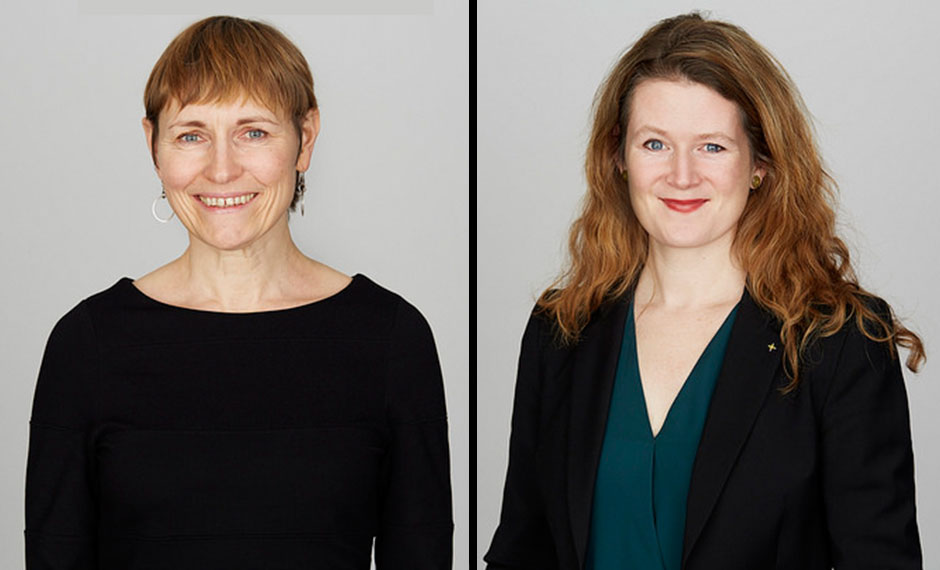In November, the Swedish Government presented its new research policy bill ‘Collaboration for knowledge – for society’s challenges and strengthened competitiveness’. The bill looks at the direction of research policy with a ten-year perspective. Strengthening collaboration between Higher Education Institutions (HEIs), society and business is a key theme, with the bill explicating stating that “science-society interaction will be enhanced, promoted and rewarded”, a move that is welcomed by VA (Public & Science).

In the bill, the Swedish government highlights three objectives for HEIs in the next ten years:
- For Sweden to be an internationally attractive country for investment in research and development. Investments in research and development should continue to exceed EU targets.
- Higher quality research and greater gender equality.
- Increased science-society interaction and societal impact.
The government will set up a special inquiry to develop proposals for new principles and forms of university governance and resource distribution. During a transitional period, the government will allocate additional funding to research and postgraduate education based partly on existing quality indicators and partly on how universities collaborate externally with other parts of society.
“It is very encouraging that there will be concrete incentives for universities to work in a more inclusive way. Researchers need to be rewarded for engaging with the public and involving the business community, public sector and civil society in their work. Training to develop public engagement and science communication skills should become a part of postgraduate degrees,” said Cissi Askwall, Secretary General of VA (Public & Science), who would welcome the opportunity to contribute to the inquiry.
The Swedish government recognises the importance of doing more to engage directly with citizens. Research funders can also contribute by communicating more about research and research results.
“We are pleased to see that the government is adopting a perspective on what constitutes science-society interaction that is broad and based on dialogue. There are a whole range of stakeholders that universities can and should be collaborating with,” adds Cissi Askwall.
Mobility between academia and society
According to the bill, science-society interaction will also continue to be promoted through employment positions that promote mobility between academia and society, such as adjunct teachers, industry-employed doctoral students and so-called ‘combined’ positions where an employee is shared by two employers.
“It is great to see that the government wants to facilitate mobility between different sectors of society. It can benefit both teaching and research. However, we would have liked to see more detailed discussion around the value of these forms of employment. Universities should be rewarded for recruiting in a way that encourages these forms of employment,” said Maria Lindholm, Director of Research at VA.
Strengthening the link between research and education
The Swedish Higher Education Authority (UKÄ) is currently responsible for quality assurance, legal supervision and monitoring of higher education. The government will give UKÄ responsibility for quality assurance relating to research as well. A more cohesive quality assurance system will hopefully strengthen the link between research and education.
There will be increased funding for improving links between research and education. The Government’s proposes that, in the 2018 budget, universities will receive a grant for research and postgraduate education of at least 12,000 SEK per full-time student. It is also positive that the government wants to improve career paths for young researchers.
Open access to science
The government proposes a shift to open access to research results, scientific publications, artistic works and research data within the next ten years, but notes that this transition could be hindered, among other things, by the lack of clear incentives for researchers to make their research and research results freely available. The message is that Sweden needs to work together with other countries in the EU and globally to achieve this.
“We are pleased to see that the government is committed to greater openness in research and is promoting the importance and benefits of researchers interacting with their surrounding community. However, we had hoped for clearer proposals on how the EU’s decision to transition to an open science system can be put into practice in Sweden. To only focus on open access to publications is not enough,” said Cissi Askwall.
“On the other hand, it is good to see the government explicitly stating that Sweden should continue to work strategically and proactively in the EU’s research and innovation programmes. And of course, investment in research and development should continue to exceed the EU target,” concludes Maria Lindholm.
For additional information see the Swedish Government’s press release on Collaborating for knowledge – for society’s challenges and strengthened competitiveness.
Earlier in 2016, VA submitted its views as part of a consultation to inform the bill.

